Has the reform drive lost its way?

Public memory is often short, and public judgement is unforgiving when people begin to sense that their expectations are being slighted. Nine months since the interim government took over, where are we, especially in respect of the "state repair" goal proclaimed by the youth-led masses when they toppled the long-entrenched autocratic regime?
Responding to the call for "state repair," the interim government appointed various reform commissions and committees on institutions and areas of work of the state, including electoral reforms. However, a bout of amnesia appears to have affected sundry pundits and analysts vocal in the media. The political class, especially the Bangladesh Nationalist Party (BNP), the presumptive government in waiting, impatiently demands an early parliamentary election. It forgot that the principal demand voiced during the July uprising was for reforms that would prevent the return of symptoms of fascism in the state and political parties.
Political and public amnesia is at work when the record of political parties in power prior to the last regime does not come under as much scrutiny as it could. Similarly, little is said now about how the interim government brought the country back from the brink of a failed state and a meltdown of the economy.
At the same time, disaffection about the interim government is widespread. A nationwide survey of more than 10,000 people in February-March this year provides evidence. Among respondents, 55.05 percent said price hikes of daily necessities were badly managed by the interim government, while 58.2 percent felt law and order did not improve enough. Over two-thirds did not see enough signs of progress towards a fair electoral process. They hope a fair election may help meet these expectations.
Not to be gainsaid that the Advisory Council, collectively and as individuals, have not been the epitome of efficiency, decisiveness, and coordinated action. For instance, emergency actions, such as pending judicial measures, were not taken in time to seize accounts, cancel passports, and ban the travel abroad of suspects involved in horrendous financial and other crimes, until they managed to empty their accounts, transfer assets in some cases, and many fled the country. The so-called "syndicates" that control the supply and import of daily necessities and manipulate the whole-sale markets have not been restrained and no perpetrator has been punished, though the characters are known.
Bringing the culprits of repression and killings during the July uprising to book is a matter of emotion and justice for the nation. However, the old ways of handling charges and cases with countless anonymous accused and mindlessly implicating people in murder cases still continue.
The Advisory Council has let the political parties construct and control the public narrative on reforms—letting them shift the discourse away from initiating reforms in political, economic, and state institutions to the election and the electoral process. The BNP has projected the election of a national parliament, not necessarily of local bodies or a constituent assembly as first steps, as the panacea for all ills.
Chief Adviser Prof Muhammad Yunus has been preaching a message of consensus-building as the precursor to democratic transition. The National Consensus Commission was formed on February 13, and it commenced work on February 15 with a six-month time table. The first phase of the consultation is set to end on May 15. One consensus-building aim is to agree on "July Proclamation" as a manifesto of the anti-fascist coalition that may guide Bangladesh's democracy journey.
The interim government appears to have put on the back burner the reports of a dozen other commissions, task forces, and committees on various aspects of state functions and institutions.
A government installed by a student-led popular movement against discrimination created a deluge of reform commissions, but not one on education. Only a consultative committee on primary education was appointed by the Ministry of Primary and Mass Education; its report was submitted to the chief adviser on February 10. It appears, however, that the top officials lack the enthusiasm for transformative change or are devoid of the imagination to comprehend the significance of the changes proposed. So far, we have seen only partial, fragmented, uncoordinated and slow steps, which are creating a negative momentum.
More importantly, there is no overall initiative to address the quality, relevance, and equity in the education sector as a whole with its many sub-sectors, such as school, technical and vocational, tertiary, and madrasa education. Are complexity, sensitivity of issues, and the difficulty of making change in the sector reasons for shying away from dealing with it? The authorities are now busy with firefighting as students, teachers, and other stakeholders boycott classes, lock up buildings, and take to the streets. This reactive approach can only compound the problems down the line.
What is the prognosis for reforms, then? Political and higher-level governance recommendations (some 166 items) in six reform reports are the focus of attention of the political parties and the consensus commission. From separate consultations with some 39 large and small political parties or groups, the outlines are emerging of the fault lines on major issues. These range from establishing balance between principal pillars of the government, forming an overseeing constitutional council, designing the local government's role and power, and agreeing on the shape and representation of the legislative bodies. Even the idea of pluralism and rejection of theocracy—the fundamental rationale of a free Bangladesh—have become divisive topics. I doubt that a unanimously agreed July charter will emerge from the consensus dialogue, unless major protagonists are willing to be in a magnanimously compromising mood.
The major reform commission proposals, besides the prioritised politics-governance sphere, are unlikely to receive the collective attention of the chief adviser and his team at this juncture. It is a pity, because these areas of reform can, if genuinely pursued, have a greater and longer term impact on the life of citizens and promote the culture and values of a democratic society.
Looking ahead and hoping for a positive scenario, Prof Yunus and his team, not ignoring many limitations they face, may concentrate on the following outcomes:
* A consensus is to be reached on the process and rules of engagement for constitutional change, rather than the substantive content of the new constitution. This implies election of a constituent assembly, which may be turned into the parliament after the constitution is adopted. Whatever agreement on the content reached now or positions of parties stated clearly would facilitate the work of the constituent assembly.
* The Election Commission's structure, capacity, and management should be strengthened; necessary changes in the Public Representation Order have to ensure a fair election, eliminating muscle and money power; and the Election Commission should be provided the budget and administrative support to hold model elections, as promised by Prof Yunus. Public representation regulations should be developed/refined and enforced regarding political parties' internal governance, finance, and reporting of election expenditures.
* If Prof Yunus and his team are willing to be resolute and bold, they should hold the local body elections as soon as possible as a trial for a fair and peaceful national election, an exercise in people's participation in genuine democracy, and for improved local public services.
* Reform proposals, besides the six under discussion, should be reviewed to identify the recommendations that can be promulgated by ordinance, and should be so promulgated. The respective ministries/agencies should be instructed to begin concerted and systematic implementation steps on these reforms.
* In the health sector, a consultative committee should be appointed to examine and guide steps towards implementing the Health Reform Commission's proposals. The committee can be replaced eventually by a permanent statutory health commission as proposed by the commission.
* In the education sector, a consultative committee should be formed with sub-committees for sub-sectors to initiate a process of situation analysis and formulating reform proposals, starting with proposing early actions. The consultative committee can be turned into a permanent statutory education commission similar to the proposed health commission.
* Given the disappearing external assistance for non-governmental development activities, the interim government should demonstrate its bona fides on citizens' and communities' roles in social/economic development reforms. An independently managed trust fund for NGO activities can be established to serve marginalised people. A beginning can be made by allocating a tiny fraction of 0.05 percent of the national budget to this fund, which may amount to approximately Tk 4,000 crore in FY2025-26.
Setting aside public amnesia and harsh judgements on the interim government, Prof Yunus and his team need not be too apologetic for their record, given the history of elected and unelected governments over the last 54 years. But it would be a shame not to make the best of the opportunity history has bestowed them.
Dr Manzoor Ahmed is professor emeritus at BRAC University, chair of Bangladesh ECD Network (BEN), and adviser to the Campaign for Popular Education (CAMPE).
Views expressed in this article are the author's own.
Follow The Daily Star Opinion on Facebook for the latest opinions, commentaries and analyses by experts and professionals. To contribute your article or letter to The Daily Star Opinion, see our guidelines for submission.

 For all latest news, follow The Daily Star's Google News channel.
For all latest news, follow The Daily Star's Google News channel. 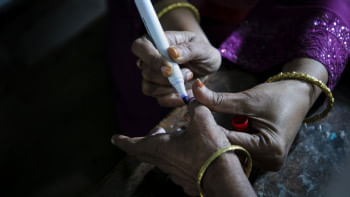
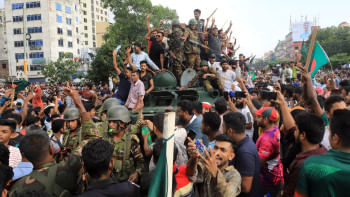
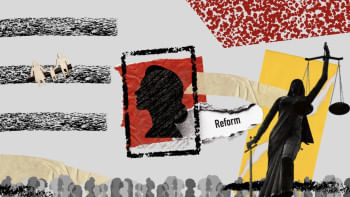
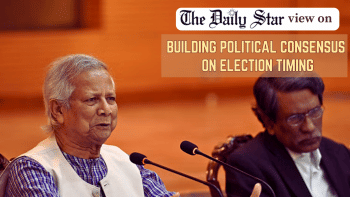
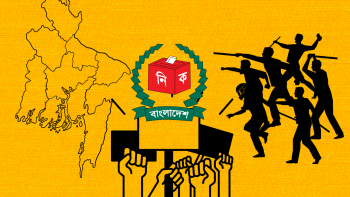










Comments